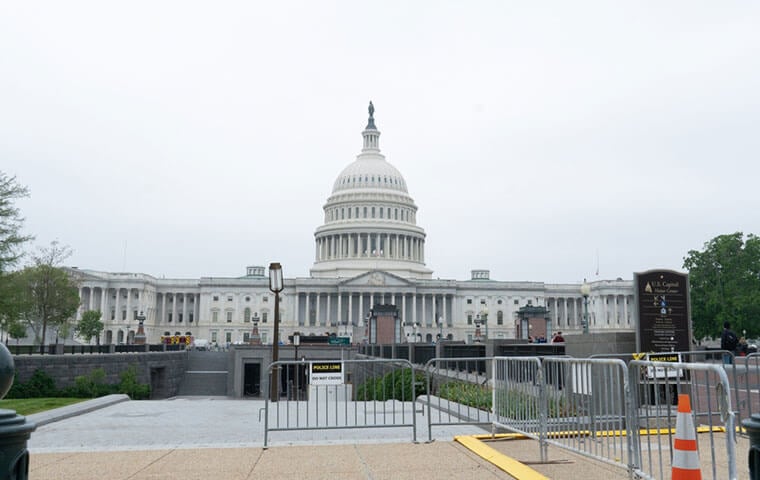 S-1678 would increase the number of CBP officers and support staff and to require reports that identify staffing, infrastructure, and equipment needed to enhance security at ports of entry. Image: 010110010101101/Shutterstock.com
By: FEDweek Staff
S-1678 would increase the number of CBP officers and support staff and to require reports that identify staffing, infrastructure, and equipment needed to enhance security at ports of entry. Image: 010110010101101/Shutterstock.com
By: FEDweek StaffAmong bills recently introduced in Congress are House measures to set new standards for probationary periods and to enhance hiring preferences after layoffs for federal employees with veteran status.
The former bill, HR-3094, would set in law a probationary period of no more than 12 months for those newly hired from outside the government into either the competitive service or excepted service, and no more than six months for current federal employees changing jobs or being promoted.
“Currently, there is no across-the-board probationary timeline that all agencies must adhere to. This bill will provide clarity to agencies with probationary periods standards within the competitive service and will remove agency discretion from retroactively reclassifying permanent employees as probationary at the will of the executive,” sponsor Rep. Don Beyer, D-Va., said in a statement.
The latter, HR-3093, would enhance veterans hiring preferences to career federal employees who have been involuntarily removed—for reasons other than performance or conduct—from their positions in the competitive service, by adding five points for hiring purposes above those to which they otherwise are entitled.
Also introduced recently were:
HR-3305, to include the full value of overtime actually worked in the retirement calculations for federal law enforcement officers whose overtime pay is limited by a cap.
S-1632, to create a pipeline into civilian federal employment for military recruits or personnel early in their military careers who are medically disqualified from uniformed service, and to expand existing efforts to recruit into federal employment military personnel who are otherwise separating from service.
S-1650, to extend collective bargaining rights to additional VA health care professionals, including registered nurses, physicians, optometrists, chiropractors and others; and to increase congressional oversight of the Veterans Crisis Line, including a requirement to notify Congress of the termination of employees.
S-1678, to increase the number of U.S. Customs and Border Protection officers and support staff and to require reports that identify staffing, infrastructure, and equipment needed to enhance security at ports of entry.
Large Share of Federal Workforce about to Experience a Payless Pay Period
OPM Details Coverage Changes, Plan Dropouts for FEHB/PSHB in 2026
OMB Says Federal Workforce RIFs are Starting as Shutdown Drags On
Financial Impact of Shutdown Starts to Hit Home; WH Threatens No Back Pay
Surge of Retirement Applications Is in the Pipeline, Says OPM
See also,
TSP Takes Step toward Upcoming In-Plan Roth Conversions
5 Steps to Protect Your Federal Job During the Shutdown
Over 30K TSP Accounts Have Crossed the Million Mark in 2025
The Best Ages for Federal Employees to Retire

